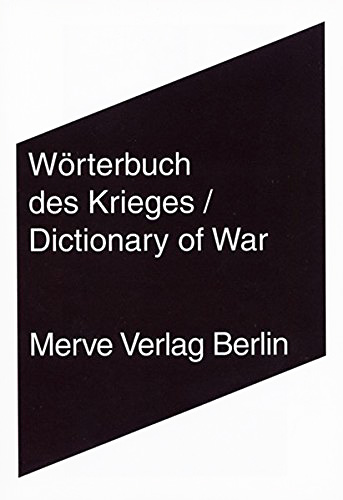At least, when we create concepts, we are doing something.
Dictionary of War is a collaborative platform for 100 concepts on the subject of war, formed and presented at four two-day events in Frankfurt, Munich, Graz and Berlin, each featuring twenty-five contributions of scientists, artists, theorists and practitioners. As lectures, performances, films, slide shows, readings, concerts in strict alphabetical order as a marathon discourse. From ABC weapons to civilian population, from parachute invasion to facts on the ground, from potato to collateral damage, from infowar to radar surveillance, from homesickness to resistance.
The aim was to (re)create key concepts that already play a significant role in current discussions of war, had so far been neglected, or had yet to be created. Dictionary of War served to scrutinise a reality that characteristically obfuscates existing power relations the more people talk about war and peace.
War as an armed confrontation between sovereign (nation) states seemed to be a thing of the past. Today it is rather: new war, post-modern war, global war, immanent war… War becomes a “constitutive form of a new order” (Alliez/Negri) that no longer knows inside or outside, that not only destroys, but also produces life. In this new world order, there is no difference between war and non-war: war is perpetual and everywhere.
Dictionary of War set out to intervene in this war and, at the same time, to appeal for desertion from a war of words in which facts are created and asserted with such a tremendous deployment of communication and propaganda that they can no longer be challenged. The concept formation of Dictionary of War, in contrast, remained transparent and took the form of open process in which people can and should intervene.


